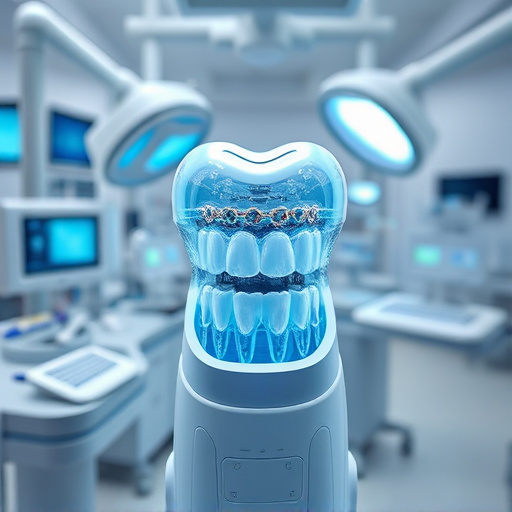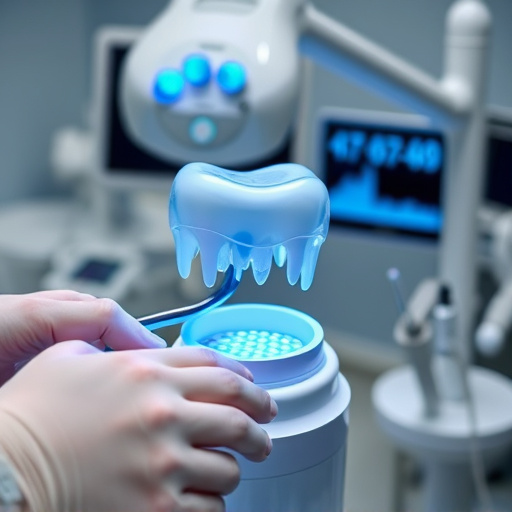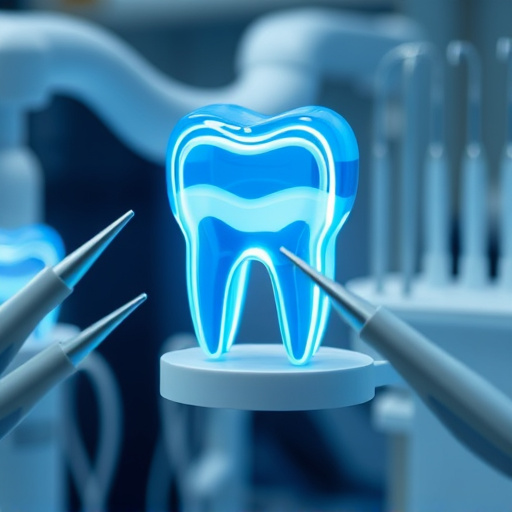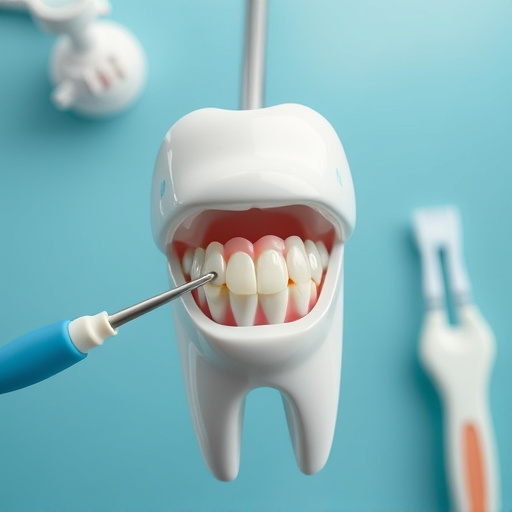Systemic antibiotic therapy provides comprehensive infection control by circulating antibiotics throughout the body, crucial for widespread or severe infections like post-dental procedure complications. This treatment is especially beneficial for younger patients needing urgent dental care, balancing rapid infection resolution with potential side effects and antibiotic resistance risks. Proper dosing, duration, and monitoring are essential for positive outcomes.
“Discover the transformative power of antibiotic therapy treatment as a comprehensive solution for widespread infections. This innovative approach, known as systemic antibiotic therapy, offers targeted and effective relief. By delving into this method, we explore its ability to combat complex infections systemically.
The article uncovers the benefits, considerations, and effectiveness of this treatment, providing insights into how it navigates the body’s challenges. Whether you’re a medical professional or interested in health solutions, this guide promises valuable knowledge.”
- Understanding Systemic Antibiotic Therapy
- Targeting Widespread Infections Effectively
- Benefits and Considerations of This Treatment Approach
Understanding Systemic Antibiotic Therapy

Systemic antibiotic therapy is a treatment approach that involves administering antibiotics to combat infections affecting multiple systems or parts of the body. Unlike topical or local treatments, which target specific areas, systemic therapy delivers medication through circulation, making it effective against widespread or systemic infections. This method ensures that the antibiotics reach every corner of the body, providing a comprehensive solution for severe or diffuse infections.
This type of antibiotic therapy is often employed in cases where an infection has spread beyond its original site, affecting organs, tissues, or entire systems. For instance, a dental procedure like wisdom tooth removal might necessitate systemic antibiotic treatment to prevent or manage potential post-operative infections that could impact overall health. In the realm of family dentistry, understanding when to employ this therapy can be crucial in managing complex oral health issues and ensuring patient well-being, especially for younger patients who may require extra care during recovery from procedures like children’s dentistry.
Targeting Widespread Infections Effectively

In the fight against widespread infections, Systemic Antibiotic Therapy Treatment stands as a powerful tool. Unlike localized treatments that target specific areas, this approach permeates the entire body, ensuring every cell and tissue is shielded from the ravages of infectious agents. By doing so, it effectively stops the infection in its tracks, preventing further dissemination and potential complications.
The method’s effectiveness lies in its ability to address infections holistically. Whether it’s battling a systemic bacterial infection or managing an inflammation that affects multiple systems, this treatment approach ensures that every affected area receives the necessary antibiotics. This is particularly crucial when dealing with conditions like dental infections that may require urgent interventions such as emergency dental care or the placement of dental fillings or crowns.
Benefits and Considerations of This Treatment Approach

Systemic antibiotic therapy offers a comprehensive approach to treating widespread infections, proving beneficial for various healthcare scenarios. This method involves administering antibiotics systemically, allowing them to circulate throughout the body to target and eliminate pathogens. The primary advantage lies in its ability to combat infections that may be difficult to reach or treat locally, making it an effective game-changer in managing severe or systemic conditions.
When considering this treatment approach, especially for procedures like tooth extractions within general dentistry practices, several factors come into play. Comprehensive dental care professionals must assess the patient’s overall health and consider potential side effects of antibiotics. Balancing the benefits of rapid infection control with the risk of antibiotic resistance is crucial. Proper dosing, duration, and monitoring are essential to ensure positive outcomes while mitigating long-term risks associated with antibiotic therapy treatment.
Systemic antibiotic therapy treatment offers a powerful approach to tackling widespread infections, demonstrating its effectiveness in various scenarios. By precisely targeting affected areas, this method ensures comprehensive infection control. While benefits are significant, careful consideration of potential side effects and patient-specific factors is crucial for successful outcomes. As research advances, personalized medicine may further optimize these treatments, making them even more pivotal in combating complex infections globally.














